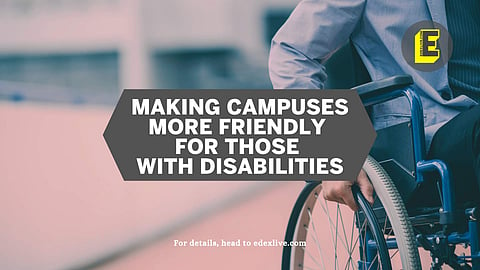

In 2009, the Right to Education Act (RTE) Act was enacted. While it was hailed as a landmark legislation, certain aspects of it continue to elude the beneficiaries. One of the most flouted norms is the one about Persons with Disabilities (PwDs). There are only about one per cent of educational institutes in India that are infrastructurally friendly for those with disabilities. This is a very small number and it means that many students with disabilities still face barriers when it comes to accessing education.
There are several reasons why only a few educational institutes are disabled-friendly. One reason is that it can be expensive to make modifications to existing buildings. Another reason is that there is a lack of awareness about the importance of accessibility. Also, a few educational institutes may not be willing to make the necessary changes.
The Indian government has taken a few steps to address this issue. In 2016, the government passed the Rights of Persons with Disabilities Act (RPWD Act), which requires all educational institutes to be made disabled-free. However, the RPWD Act has not been fully implemented and there is still a long way to go.
A few steps can be taken to increase the number of disabled-free educational institutes in India. The government needs to provide more funding and support to educational institutes that are making efforts to become barrier-free.
Another step could be to raise awareness about the importance of accessibility and to educate people about how to make their facilities accessible. Finally, educational institutes themselves need to be willing to make the necessary changes to their facilities.
Specifically, the RTE Act states that:
Children with disabilities are entitled to free and compulsory elementary education in a neighbourhood school
Schools must make reasonable accommodations for children with disabilities, such as providing ramps, Braille textbooks and sign language interpreters
Parents have the right to choose a regular school for their child with a disability, or to send their child to a special school
Schools that do not comply with the RTE Act's provisions for children with disabilities can be penalised
